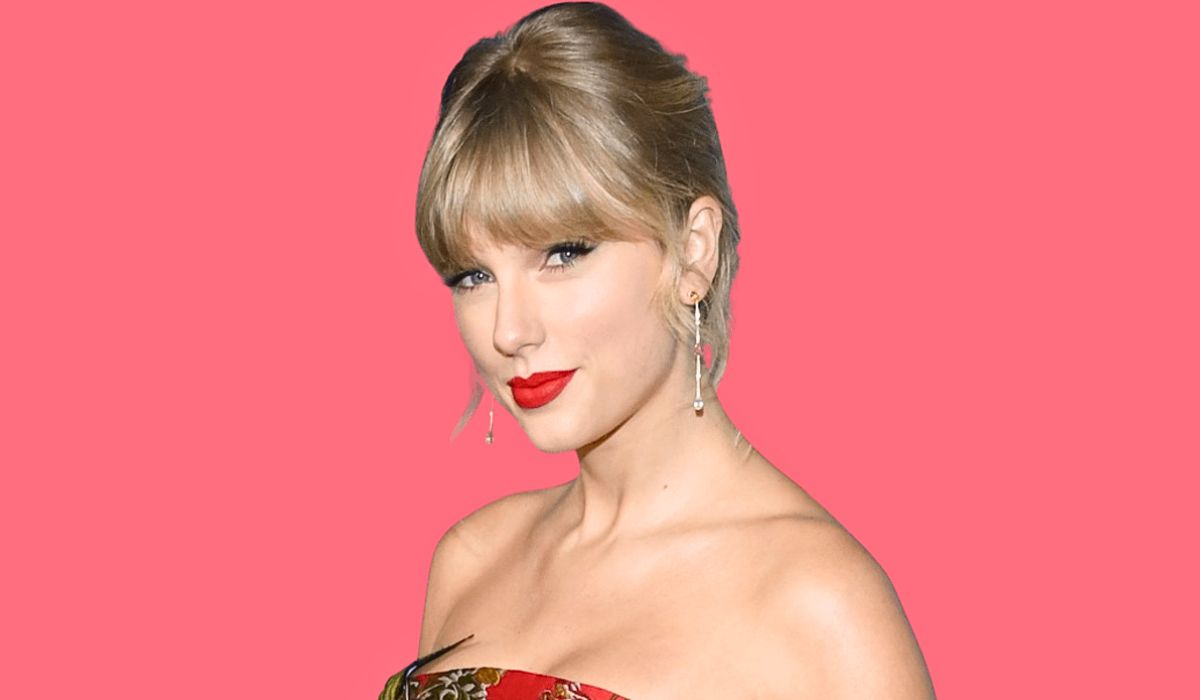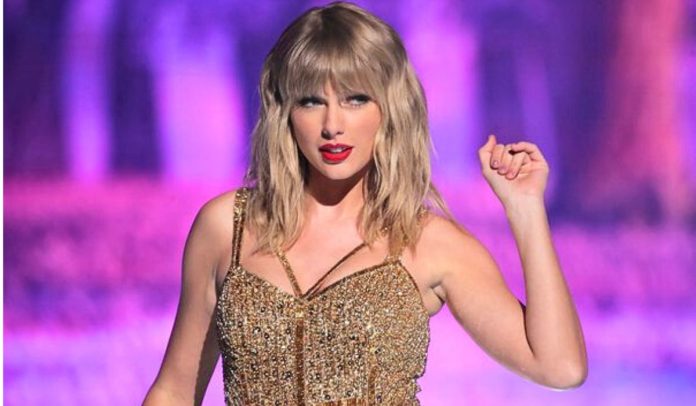Taylor Swift‘s public persona is often characterized by her vulnerability, her candid excavations of personal turmoil and romantic drama, and her fierce integrity in protecting her artistic truth. She’s a beloved figure praised for using her platform and introspective songwriting to promote values like body positivity, feminism, and resilience in the face of criticism.
However, somewhat lost in this serious discourse around Swift’s artistic impact and moral stances is an acknowledgment of her delightfully playful side and self-effacing sense of humor. While she’s frequently portrayed as an earnest open-book songwriter unafraid to bleed profoundly personal emotions onto records, Taylor also has an uncanny knack for satirizing her own celebrity through pitch-perfect comedic timing and self-referential wit.
From sly music video cameos and award show zingers to media training videos and television sketch show appearances, Swift has demonstrated an eagerness to get delightfully weird and silly that adds nuance to her public persona. This playfulness humanizes her beyond just the associations of personal candor and emotional soul-bearing that color most perceptions. And frankly, after over 15 years of intense fandom fervor, scrutiny, and life milestones playing out in public, having the awareness and breezy irreverence to poke fun at herself is arguably an essential trait in retaining any semblance of sanity.
More importantly, though, this self-skewering humorousness is also emblematic of an authenticity and lack of self-seriousness that’s actively endearing. From chat show press tours where she’s donned quirky costumes and superfan drag to the eerily pitch-perfect Daria deadpan parody she portrayed in the Tonight Show’s “Ew!” sketches, Swift has continually reinforced that she’s not remotely as self-important or pretentious as the hyperbolic media circus surrounding her in any given album cycle might have you believe.
In recent years, her self-satirical streak hit an apex with the video releases for singles from her albums Reputation and Midnights. The Joseph Kahn-directed spectacle for “Look What You Made Me Do” saw her embodying a veritable shapeshifter’s runway of high camp burlesque sends-up of her public narrative as a zombie Stepford Wife, chained biker rebel, gold-grilled hip-hop caricature, and much more.
In the music video for “The Man,” she disappeared entirely into a prosthetically augmented male alter ego who manspreads, vaped, and bro’d out with reckless privilege satirizing the societal double standards of how male celebrities can embrace stereotypical arrogances without the criticisms foisted upon her. Her whiskered goatee and tousled wig made it clear she was firmly planting her tongue in cheek in a cheeky repudiation of public perception.

But arguably her most sustained comedic canon is encapsulated in the boundless delightful WTF meme fodder supplied from her most recent music video for “Anti-Hero.” In the lushly produced clip, Swift triples as her own harbinger of self-loathing with a fiery fur-coated embodiment of her id gleefully mocking and undercutting her more grounded earthy-toned self. The visual alone of a crass burgundy-lipped Swift puffing a ciggie while irreverently taunting “You’re not even half as terrifying / I’ll stare directly at the furnace of the sun!” is one of the most joyously loopy nonsequiturs ever depicted in a pop music video.
What makes the entire spectacle even more delicious is how deeply metatextual and layered within Swift’s own personal psyche the entire video resonates. The imagery of not looking at explosions, fearing an ambient crowd watching from shadowy corners, and wrestling in a garishly cartoonishly bedroom fraught with symbols couldn’t be a more visceral journey into peeling back the self-examining hyperawareness required to process her entire world being voraciously deconstructed on a daily basis.
Yet it’s also outrageously, overwhelmingly silly in a way that only amplifies the relatability. Monster truck front flips, weird EDM office dance parties, self-immolating couch naps – the entire essence of the video is a surreal patchwork of diaristic absurdities that reinforce how she’d surely be insane if she didn’t find some method to occasionally untether from her egregiously scrutinized reality.
This makes the self-skewering humor all the more refreshing as a release valve from the claustrophobia of having every move and inspiration relentlessly combed through by hardcore sleuthing fans and media speculation. In lampooning her own perceived flaws and dialing them up to surreal camp levels of absurdism, she’s able to instantly subvert the more tired narratives that attempt to rigidly define her in staid terms.
In essence, Swift’s comedy chops offer not just a respite from taking herself too seriously, but a creative mode of direct commentary on how outrageous a degree of hyperbolic psychoanalysis is routinely conducted upon her entire being. By using distinctly purposeful self-parody and mockery tactics across music videos and press tours, Swift reasserts her humanity and injects a welcome levity into the breathless discourse surrounding her artistic and personal life.
Some may dismiss these sillier comedic detours as mere marketing tactics to reinforce mythologies and ignite fan anecdotes that keep sagging buzz cycles proliferating. And there may be some commercial truth to programming baked-in meme factories like “Anti-Hero” that instantly populate an algorithm intoxicated by pieces of promotional virality. But it would also be cynical in the extreme to dismiss the authentic strangeness and zest she seems to exude in eagerly deviating from pristine control-freak pop optics and getting gritty, weird, and self-mocking in public.
After all, this is someone who first rose to fame as a bright-eyed teenager unafraid of publicly being perceived as “uncool” in her songwriting earnestness. From amiably lip-syncing on national television to sharing the stage with inexplicable ambassadorial cats and pining adolescent misfit monologues, an eager embrace of awkward inappropriateness has been a long-standing facet of her persona that only humanizes her authenticity as an individual. And thankfully, over 15 years later, that whimsical self-deprecating strangeness hasn’t entirely been scrubbed clean by the PR juggernaut of celebrity packaging as she’s ascended to the most rarefied stratospheres of superstardom.
So while the ruminating prose, diaristic breakup requiems, and searing emotional vulnerability may dominate the bulk of the popular Taylor Swift discourse, it’s refreshing to recognize the equal power that her moments of oddball hilarity and satirical self-critique play in reinforcing her oft-obscured normalcy and proving herself to be a buoyant spirit unafraid to be the first one poking fun at her own celebrity deification. Fans may throw themselves into the emotional roller coasters of her work and take her art with utmost seriousness, but Taylor Swift proves she has more than just confessional profundity powering her creative engine.

